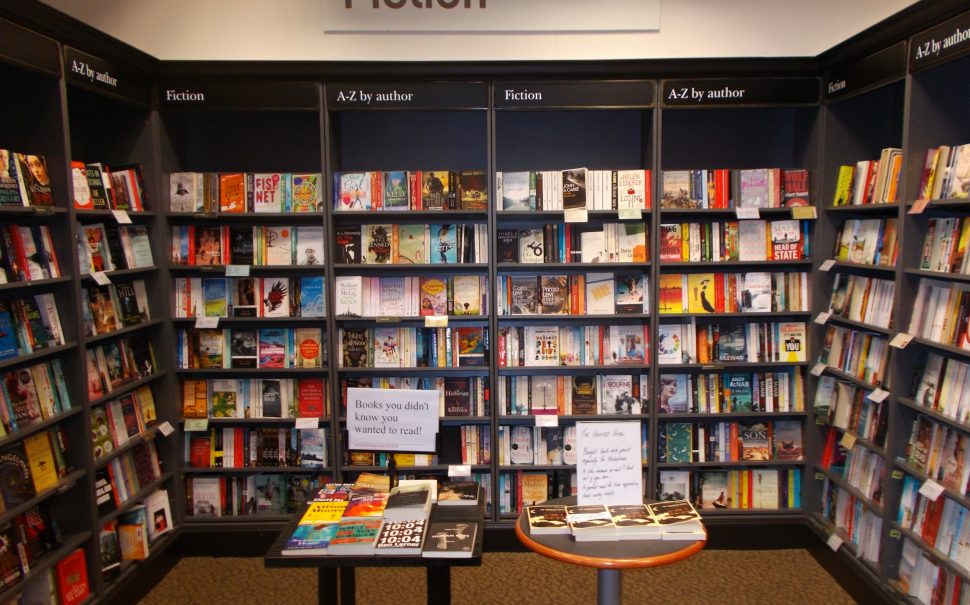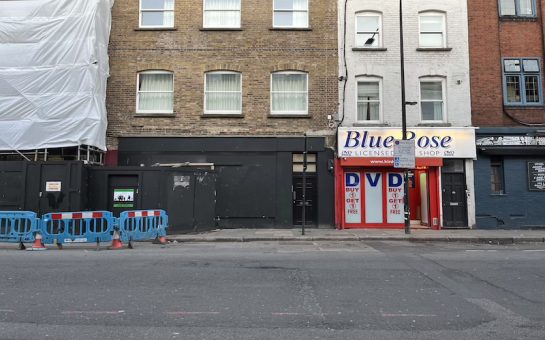Individual Waterstones branches are often given some freedom to curate displays as they see fit, with booksellers expected and encouraged to promote titles likely to be popular with customers.
But a good grasp of one’s clientele isn’t the only factor shaping how stock is arranged. Which books get shown, and the level of prominence they enjoy, can also be the focus of politically charged cat-and-mouse games between booksellers, managers, and customers.
It comes as an image shared widely on X earlier this month appeared to show Sally Rooney’s Intermezzo arranged next to books about antisemitism at Waterstones Hampstead.
A spokesperson said this was “not a display curated by booksellers but rather the placement of books — intentional or accidental — by customers.”
But current and former employees, all of whom requested anonymity to speak candidly about their experiences, said that covert and often unauthorised tampering with displays of controversial titles by booksellers was commonplace.
“I might put a single copy spine on, face out something I did like instead, and put excess stock in the backroom, reducing visibility,” said one former bookseller who worked in a West London branch of Waterstones.
“The managers wouldn’t always notice those smaller decisions, so you’d generally get away with it.”
Helen Joyce’s Trans: When Ideology Meets Reality, then newly out on paperback, was particularly “notorious” among colleagues, who often made an effort to hide it, he said.
Such actions might have been “stretching” the convention that booksellers enjoy a degree of creative licence to promote certain titles per their tastes, but is “reflective of maybe the ways in which employees might shape the store to share their opinions,” he added.
It’s easier to get away with when the branch has only been sent a few copies of the offending book, said a bookseller currently working at a Waterstones in the south-west of England.
She recalled deliberately leaving the single copy received of Jake Wallis Simon’s Israelphobia: The Newest Version of the Oldest Hatred last in the stacking pile so she could put it on a trolley instead, and quietly agreed with other colleagues to keep the Israeli Prime Minister Benjamin Netanyahu’s autobiography off the shelves.
“But if someone comes and asks for it, I’m not going to say no. I’ll just discreetly get it for them and move on with my day,” she added.
Sometimes these tactics would catch the attention of senior staff, however.
One former bookseller who also worked in the south-west said they’d tried to remove the essay collection The Woman Who Wouldn’t Wheesht from display after the manager put it face out, only for a customer to complain about the “silencing [of] transphobic views.”
“I put one singular copy on the shelves, spine-facing as opposed to face out. But then my manager told me off, so I covered them up with Judith Butler’s new book,” they said.
When employees were allowed to lay out displays based on their recommendations, the same manager would remove titles that covered trans issues from a trans-affirming perspective for being “too political,” the former bookseller said.
This explanation was “dubious,” because when biographies of political figures like Theresa May and Liz Truss came out, “she’d have them face out and all over everything,” they said.
“It’s not registered as a double standard.”
One bookseller in Oxfordshire said she would “never” write a review card for a book she disagrees with, and tries to put those titles spine-on rather than face-out.
That happens with the full knowledge of her manager, who is very accommodating of booksellers not wanting to recommend certain books for ideological reasons, she said.
But some boundary pushing does happen, she said.
When her branch was told to dedicate an entire display to Boris Johnson’s recently published autobiography Unleashed, a colleague put a single copy of parody book Unhinged on the same table, where it stayed until the display came down.
In general, she and her colleagues can’t get away with simply removing books they disagree with, so instead make a conscious effort to promote inclusive material, such as by putting it as close as possible next to displays of controversial books, she continued.
“It’s about hyper-recommending other things,” she explained.
Other booksellers said they hadn’t witnessed any internal politicking, and that customers rather than employees were often the ones changing displays.
Booksellers remove offensive notes slotted by customers inside books that deal with racism or LGBTQ+ issues “pretty much daily,” a bookseller at a Waterstones in south London said.
“When a book about Liz Truss was face-out on the shelf, people came in and flipped it the other way,” another bookseller in London said.
“I’d just go and flip it back, I don’t think we are the company to be deciding things like this.”
Staff are very committed to impartiality, but face “outside pressure” from customers, who often try to engage booksellers in politics by asking pointed questions about certain titles, said a third.
A Waterstones spokesperson said that the “mischievous, let alone malicious” behaviours described by booksellers are “vanishingly rare.”
“The contention that one manager behaved as you described is exceptionally unlikely and not known to us,” she added.





Join the discussion